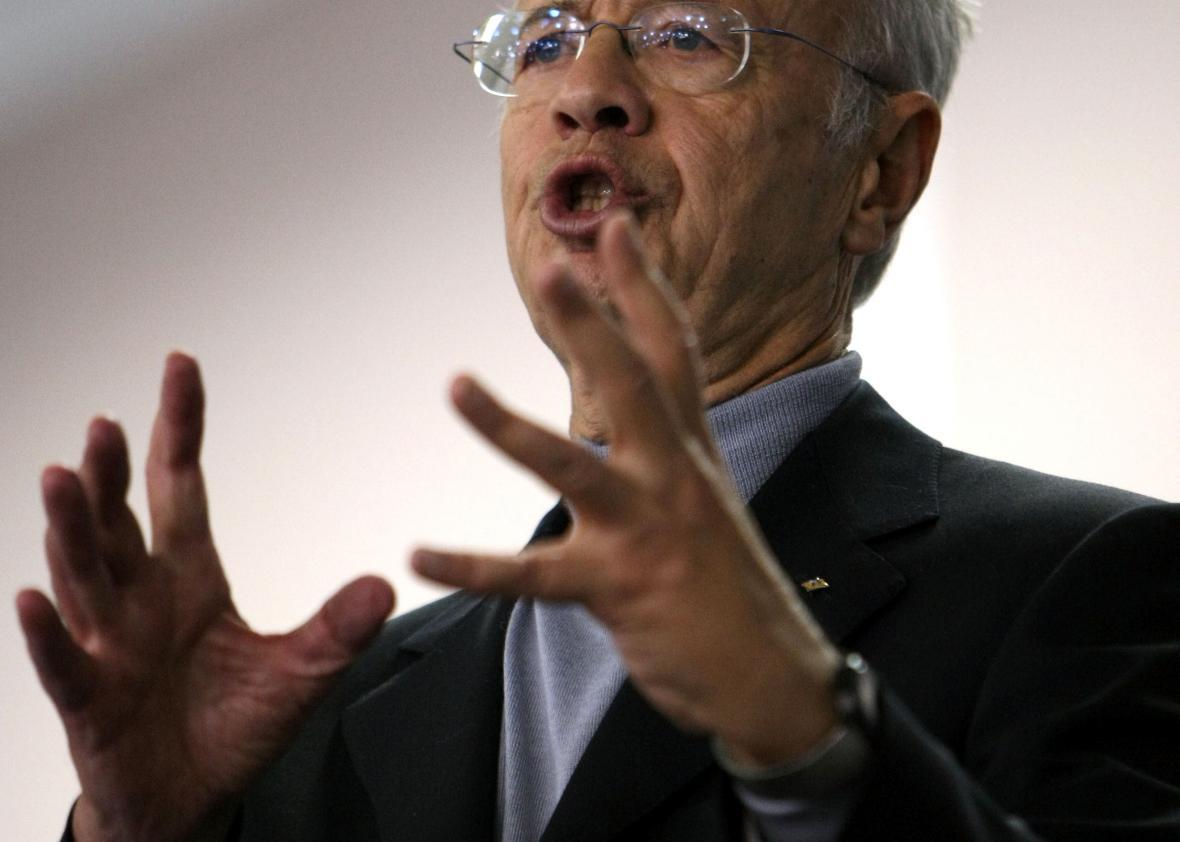When historians with more evidence, context, and distance from this era weigh the life and achievements of Andrew S. Grove, who died Monday at 79, one of their dilemmas will be deciding how great he was. But “great” will be a given.
Andy Grove was the third employee of Intel and became its president, CEO, and chairman. He was a brilliant but unsparing manager and ultra-rough competitor. He became a distinguished author, teacher, and campaigner for health care reform. More than any Silicon Valley leader since Bill Hewlett and Dave Packard, he influenced several generations of people in the technology world and beyond. Only Bill Gates, Steve Jobs, and now Elon Musk are in remotely the same category.
I arrived in Silicon Valley decades after Grove, and a few years after he led Intel on a then-radical new path that not only saved the company but positioned it to be one of the two or three best manufacturing companies in the world. In what he later called a “strategic inflection point”—when the fundamentals of a business are changing, creating an opportunity, or signaling demise—he persuaded his Intel colleagues and directors to shift from computer memory and focus, all in, on microprocessors. To call this move risky is to understate it, because he was betting the company on being right.
Grove operated with clarity of purpose, with methods that raised plenty of eyebrows, including mine. He was, to put it mildly, demanding of his colleagues—internal debate often involved shouting—but the goal was to get to the right answer. Once, I asked him what he thought Intel colleagues liked most about him. He replied, “I say what I think.” And what did they like least about him? “I say what I think.”
In the early 1990s, when a potentially terrible bug was found in the internal code of the Pentium chip, the overwhelmingly dominant central processor of personal computers at the time, he initially downplayed the flaw’s significance. But when confronted with evidence that it could lead to some serious problems for a few users, and threatened to ruin Intel’s reputation, Grove did an about-face and offered to replace the chip for anyone who asked. He never really believed the bug was that bad, but the evidence ruled.
Intel’s business practices sometimes went to the edge, and perhaps over the line, of fairness. Grove’s oft-repeated mantra, later expanded into his 1996 book, Only the Paranoid Survive, was fundamental to the corporate culture. I wrote in my San Jose Mercury News column, not long after arriving there, that paranoia wasn’t an admirable quality, but rather an “evil, debilitating sickness.” Grove told me I didn’t get it. In some ways I didn’t, having not yet grasped the valley’s stunningly rapid pace of change. But I’m also convinced the tech industry’s response to its deeply ingrained paranoia—ruthless, often predatory tactics and frequently disdainful treatment of customers—has contributed to society’s increasing cynicism.
Grove’s view of humanity came, in part, from his youth in Hungary. Born András István Gróf into a middle-class Hungarian family, he was a star (but not superstar, he once suggested to me) student. (An astonishing number of geniuses in science, finance, the arts, and other fields emerged from Hungary around the same time, including, among many others, Béla Bartók, John von Neumann, Edward Teller, Leo Szilard, George Soros, and Elie Wiesel.*)
His family was a target of Nazis and, later, Communists. As he recounted in his moving autobiography, Swimming Across, he was almost penniless when he escaped to America, where he taught himself English and made his way through City College of New York and then the University of California–Berkeley, ending up with a Ph.D. in chemical engineering—an ideal education for the early days of Silicon Valley’s chip-making boom. During his long career he mentored some of the best-known company founders, including Jobs and Mark Zuckerberg, many of whom had come of age in vastly more comfortable situations.
My own interactions with Grove were sporadic but memorable. Unlike some executives who put me on communications blacklists because they objected to what I’d written, he always engaged—usually bluntly. One morning in 1999 I was attending the reopening of a much-expanded Intel Museum and walked up to Grove, who was surrounded by a group of visitors, to say hi. He said, “I want to punch you in the mouth,” and a few jaws dropped, because for a few seconds only he and I knew he was (mostly) kidding. He was grumpy because I’d suggested in my column that Intel, like so many other Silicon Valley companies, professed independence from Washington until it needed a favor. We agreed to disagree.
A few months earlier, Grove had told America’s top newspaper editors that they were facing an inflection point much as Intel had faced in the 1980s. “You can save yourself deeper into the morass that you’re heading to,” he said. “But you can only invest your way out of it, and I really wonder how many people who are in charge of the business processes of journalism understand that.” Needless to say, the newspaper industry didn’t take his advice.
A decade later, when I was working on a book about the media and years after leaving the newspaper business, I asked him if he’d be interested in revisiting those prescient remarks. He declined. “I don’t want to gloat, and I don’t want to be in the ‘I told you so’ mode,” he wrote me in an email. “Nothing is different about the newspaper industry. I have found that transformation (aka change) is one of the hardest things in the lives of institutions and organizations. You simply were not different than everyone else.”
Andy Grove was different, and we’re better off for it.
*Correction, March 23, 2016: This post originally misspelled Elie Wiesel’s last name.
